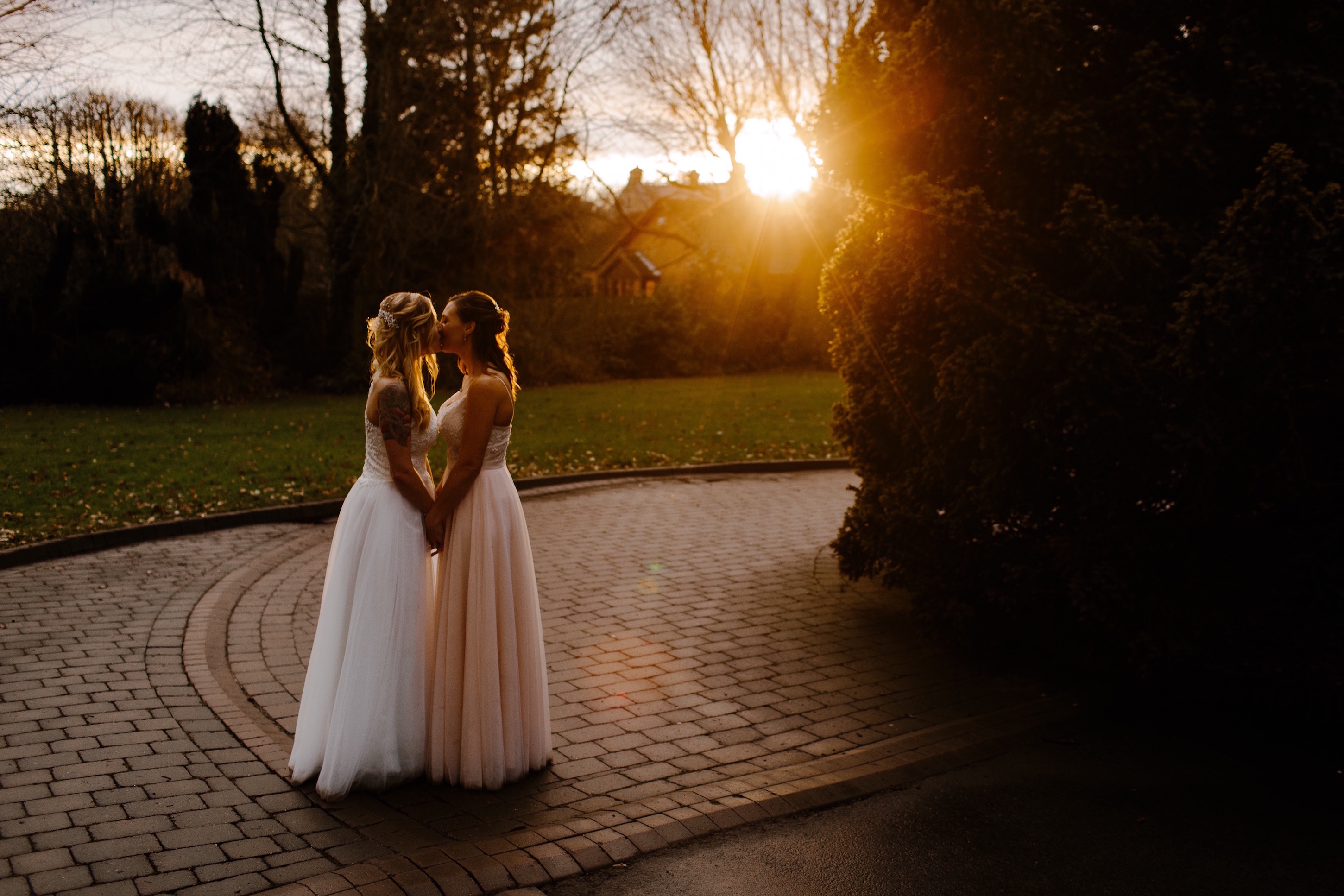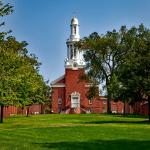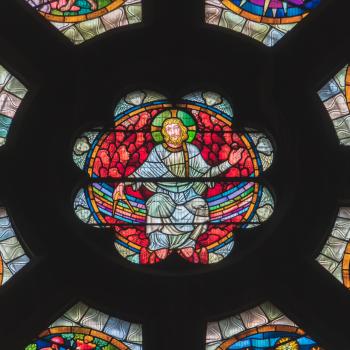
The current position of the Adventist church is vastly out of step with its earlier traditions. If one were to take Ellen White’s old counsel to heart, the future of the Adventist church should be inclusive of all marriages, whether or not it chooses to officiate them or promote them. The question, as such, is not whether Adventism can come to accept married same-sex couples in its churches as members, but whether it will choose to do so.
INTRODUCTION
The Internet, and many parts of the North American Division, were ablaze with anger, frustration and angst this past Fall after it was reported that the Northern California Conference (NCC) recently sent a letter warning pastors not only in the NCC but in the entire church that they were, under no circumstance, supposed to baptize or accept married same-sex couples as members of the Seventh-day Adventist church.
However, this creates a real dilemma that has yet to be explored: is the NCC honestly suggesting that this married Lesbian couple cannot become members of the Adventist church unless they first get a divorce?
In other words: this couple, and others like them, cannot become members of the church unless they first go against scripture?
A “STRANGE” TEACHING
It’s a strange idea the NCC appears to be suggesting: One must first go against God’s wishes in order to best fulfill them?
It certainly seems as if this is the point the letter is making.
Because homosexual relationships are grounds for censure during church membership, a married same-sex couple cannot become members unless they renounce their relationship (not their orientation, which is accepted officially by the SDA church as natural).
Yet, this creates quite a paradox! Because the same Church Manual (in the same place!) is quite clear that Divorce for any reason other than infidelity (not even homosexuality!) constitutes grounds for removal from membership.
Which means that according to the same Manual, a legally Gay married couple, for the same reason they cannot become members due to their relationship, cannot also logically become members by disbanding it (for they are doing the very thing that the Manual also says can bar membership).
In other words: Damned if you do and damned if you don’t.
If they stay married, they are barred. However, if they divorce for a reason other than infidelity to their spouse, they are supposed to be barred as well.
Clearly this is a bad argument for the NCC to make if what they propose is that in order to be in compliance with one part of the Church Manual, one must violate a different part of the same regulation they are citing!
UNEQUAL TREATMENT
Another aspect of this is the inequality present in how the Manual is implemented. Today, the Adventist church does not enforce the Manual’s rules on divorce because of how it would affect almost half the church’s membership. Yet, it appears to wishe to enforce a different rule because only a minority of its members will be affected.
This is an odd image to present to the world for it appears to imply that the only reason there is enforcement is because the LGBTQ community is a minority.
It suggests, however awful, that the NCC would not be as willing to enforce the rule if the LGBTQ community was also a sizeable community, one it did not wish to upset.
Is this the sort of image that any church, the bride of Christ, should present to others? Of course not!
ELLEN WHITE & UNBIBLICAL MARRIAGES
Ellen White wrote some important and perhaps timely counsel with regard to an issue such as this. Speaking about Marriages as a whole, she wrote this advice regarding what one should do if Adventists were involved in a marriage that did not appear to meet Biblical injunctions:
We should move very cautiously and with pitying tenderness, because we do not know all the circumstances which led to this course of action. I advise that these unfortunate ones be left to God and their own consciences, and that the church shall not treat them as sinners until they have evidence that they are such in the sight of the holy God. He reads hearts as an open book. He will not judge as man judgeth. Letter 5, 1891.
So whoever knows the right thing to do and fails to do it, for him it is sin. (ESV)
If you don’t understand how she connected the verse to the situation, merely reverse the order of the sentence to understand its implication. Here’s my own paraphrased example:
Sin is defined as knowing and being convicted by what is right and yet still insisting to do the opposite.
Mrs. White takes James to heart and assumes that if a couple entered marriage in the sight of God and the Church, even if others think that what they have done is wrong, it is now between them and God and the Church should not treat them as sinners until they themselves believe themselves to be so.
Her other concern appears to be the fact that those who would seek to encourage the dissolution of an “unbiblical marriage” typically appear to cause more harm than good. She warned that these people “had the faculty to confuse, distress” and more importantly, she warned that they actually created “a most deplorable condition of things.”
In other words, the ending of the “unbiblical” marriage could often created a worse situation than the original marriage that others objected to. She warns the person she is writing that, regarding a specific case:
I hope to learn that this matter is not pressed, and that sympathy will not be withdrawn from the two whose interests have been united.
Years later, Mrs. White’s son William C. White wrote the following on the same issue, stating that he believed his understanding to have been the same as his mother’s:
My own views regarding this matter, which I believe to be in harmony with the counsel that I have heard Mother give to individuals years ago, and which I believe to be in harmony with views of the leading brethren and with the teaching of the Scripture, is that there is no blessing to come by our breaking up families who may have sinned or been sinned against before or since they embraced present truth.—W. C. White letter to Elder G. W. Anglebarger, October 6, 1911.
IS IT REALLY DIVORCE?
Some may argue that because same-sex marriages are not straight marriages, they are not truly marriages at all. In that case, such people will argue that a same-sex couple who divorces have not truly divorced at all, because in their view, they were never truly married to begin with.
While this is an interesting argument, it actually fails to understand Ellen White’s counsel.
The topic of Ellen White’s concern is unbiblical marriages. By definition, if a marriage is unbiblical, it is already assumed to not be approved by God.
If that is the case, then it would not matter whether the marriage was straight or same-sex: if it was unbiblical, a divorce in either case would not make a difference (since, as some would argue, they weren’t truly married to begin with).
This is an important principle to grasp: it shouldn’t matter whether the unbiblical marriage is straight or same-sex. The fact that it is unbiblical would make it invalid, and as such, acceptable to divorce.
Yet, this is not the argument that Ellen White makes! She argues that even if a marriage is entered into that is not approved by God (even if it is unbiblical!), the church must not request that they get a divorce.
She argues that God honors unbiblical marriages once two people have honestly committed themselves before God to have one. Even if potentially their marriage is a sin, she writes, God will not require them to divorce unless they themselves eventually believe it is.
And she argues, most importantly, that the church should not try to convince them that they have sinned. Instead, it should provide the spiritual space for them to draw closer to God, apart from judgment.
As such, divorce for married same-sex couples cannot be defended by the argument that they are not truly married. Even if the marriage is unbiblical, Ellen White makes it clear from her counsel that divorce is not to be entertained as a solution.
POLYGAMY AND DIVORCE
Similar conversations are currently ongoing in parts of Africa, where the practice of polygamy (having more than one wife) is culturally accepted and even promoted.
In those countries, the Adventist church is forced into a similar problem: should the husband of more than one wife first be forced by the church to divorce one of his wives before he and they can be baptized?
A major problem with this idea is that a woman who has been divorced in such countries may end up suffering throughout life in her society as a result.
The answer, as such, for many African Adventists (both lay and officials) has been to reject this approach. Many of them recognize, like Mrs. White, that there are severe ethical consequences for such actions, consequences that hurt Christ more than uplift.
Today, many African Adventist churches ignore polygamy as a factor in church membership, following Ellen White’s advice about how to handle such situations. If the Adventist church can do it for polygamy, why not same-sex marriages?
Moreover, if we do not apply this same thinking to same-sex marriages, are we guilty of discrimination?
CONCLUSION
There will doubtless be some who object and point out that Mrs. White never assumed the possibility of LGBTQ marriages, and most certainly they will then argue that my suggestion and application is flawed.
However, this is not a good objection to make. Mrs. White’s point was not to specify advice concerning a specific type of unbiblical marriage, but any marriage situation that could fall under the designation of unbiblical.
In that sense, all of Mrs. White’s advice naturally includes what today is the most widely discussed of “unbiblical” marriages.
Given this counsel from both Whites, and the fact that it represented the Seventh-day Adventist Church’s earliest position on the matter, does it not seem that the current position of the church is vastly out of step with its earlier traditions?
If one were to take this old counsel to heart, the future of the Adventist church should be inclusive of all marriages, whether or not it chooses to officiate them or promote them.
Members of the church, straight or otherwise, who are already married, would be encouraged to value and honor their marriage without being chastised for perceived doctrinal or theological incongruences on the part of the minister or congregation.
More importantly, if this advice were followed, the Adventist church could find a middle-ground in which it could both be inclusive as well as continue to honestly wrestle with its conservative heritage and understanding of the Bible and marriage.
Such a middle-ground might be rightly needed now at a time when so few conservative churches are willing to even discuss such issues, let alone seriously take action. Thanks to Mrs. White’s inclusive counsel, the Adventist church has the unique opportunity and heritage lead the way where others have not.
It is clear that the present position of the NCC is not logically or spiritually tenable. One cannot expect divorce as a pre-requisite for membership. Thankfully, due to Mrs. White’s wisdom, such a position is not our only option.
The question, as such, is not whether Adventism can come to accept married same-sex couples in its churches as members, but whether it will choose to do so.
Or, to put another way, let me ask whether you can imagine that Jesus (the one who banned all divorces in Mark and Luke) would first ask for a divorce before permitting a couple to become his disciples?
If the answer is no, that our actions do not match Christ’s, then that should tell us that our current course is not right.
 Matthew J. Korpman is a minister-in-training and published researcher in Biblical Studies and Church History. Graduating from the H.M.S. Richards Divinity School, he is completing four degrees in fields such as Religious Studies, Philosophy and Archaeology before continuing his studies at Yale Divinity School this Fall. He is an active member of the Seventh-day Adventist church whose research interests include everything from the Apocrypha to the Apocalypse.
Matthew J. Korpman is a minister-in-training and published researcher in Biblical Studies and Church History. Graduating from the H.M.S. Richards Divinity School, he is completing four degrees in fields such as Religious Studies, Philosophy and Archaeology before continuing his studies at Yale Divinity School this Fall. He is an active member of the Seventh-day Adventist church whose research interests include everything from the Apocrypha to the Apocalypse.












